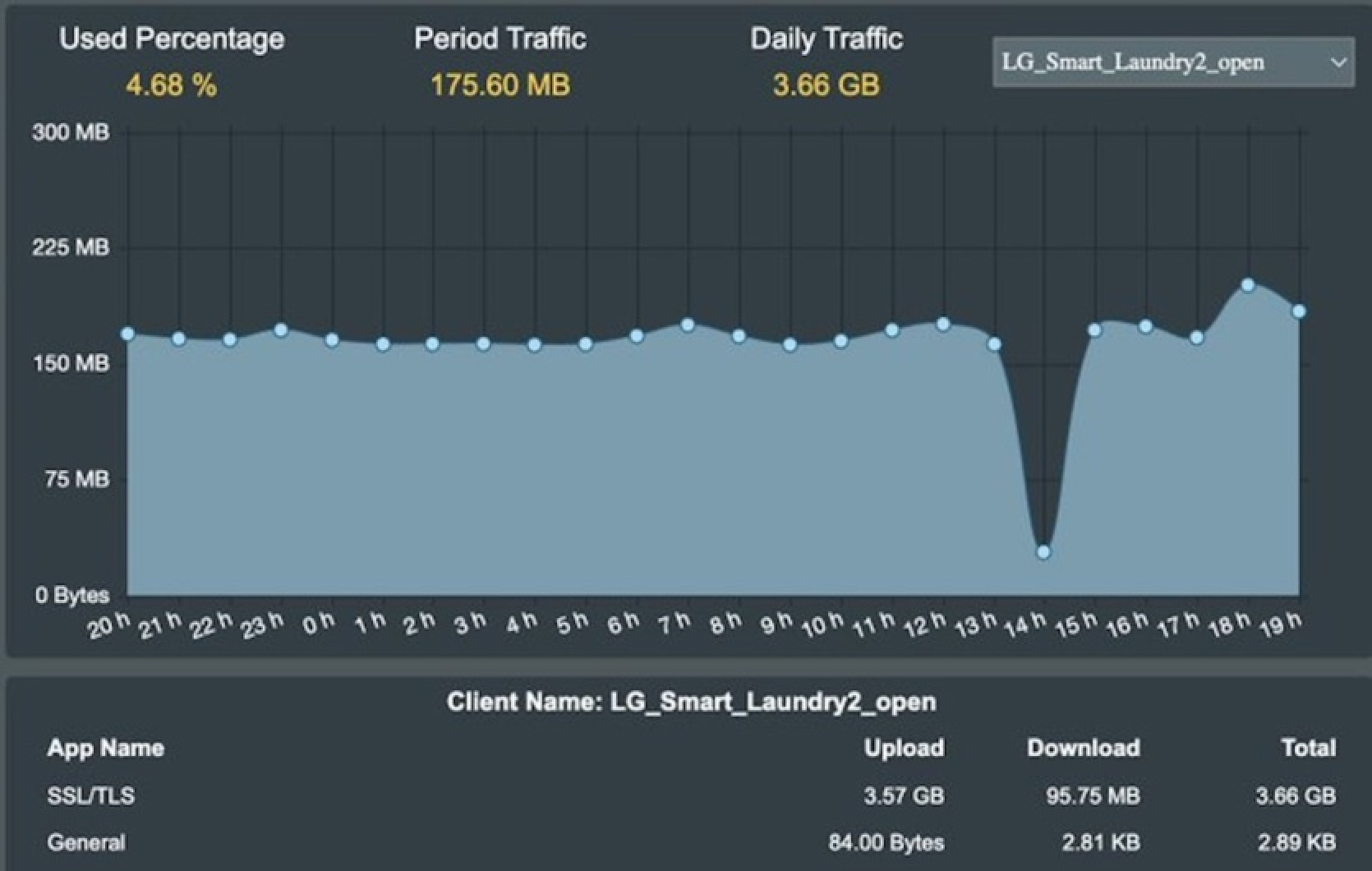The owner of the LG washing machine under the nickname Johnie asked Twitter why his "smart" home device is loading an average of 3.66 GB of data per day. Concerned about the internet dependency of the washing machine, Johnie forced the device to reboot and blocked it using his router's interface.
WTF! Why is my LG Washing Machine using 3.6GB of data/day? pic.twitter.com/xQqQicTqxI
— Johnie (@Johnie) January 9, 2024
Social media users eagerly joined in detective work, trying to figure out why the LG washing machine might be so data-hungry, reports Tom's Hardware.
Was the device downloading DLC or was it victim of hacking?
The owner of the LG washing machine saw a funny side to his predicament and joked that the device might be using Wi-Fi for DLC (downloadable wash cycles). He wasn't completely joking: The machine does download settings for different types of clothing. However, the lion's share of the transmitted data was indeed excessive.
Continuing on the topic, Johnny also pondered whether someone could be using his washing machine for cryptocurrency mining. "I would gladly rent out our LPU (Laundry Processing Unit) by the hour," he joked. Once again, there was a glimmer of possibility behind this joke. Another social media user pointed out the story of hackers seizing control of LG SmartThinQ smart devices (HomeHack). Such a modern hack could use the computing resources of the washing machine as part of a botnet. Gaining control of an LG washing machine as part of a large bot network for cryptocurrency mining or malicious network purposes is not that difficult. A large number of relatively low-power devices can be very powerful together.
One of the most innocent theories regarding the significant data usage suggested that laundry data was being uploaded to LG so it could enhance its LLM (Large Laundry Model). The company was trying to do this to prepare for the launch of its latest "combined washing-drying machine with artificial intelligence" at CES, Johnny joked.
Issue with Asus router?
Another relatively harmless reason for the potential large volume of downloads could be a firmware error in the Asus router. In a follow-up tweet a day after his initial tweet, Johnny noted an "inaccuracy in the ASUS router tool" regarding Apple iMessage data usage (but not to the same extent). Other users of LG smart washing machines showed the devices' data usage through their router interfaces. It turned out that these devices typically use less than 1 MB per day.
Real danger of hacking connected devices
While Johnny's tweets were relatively lighthearted, the hacking of connected smart devices may have serious consequences. What could happen if cybercriminals seize control of, for example, medical or industrial Internet devices?
An example is the story of connected Bosch drills, used in factories worldwide, which have numerous vulnerabilities. Researchers emphasized that wireless industrial drills could be targeted by exploits or ransomware, which could lead to mass drill shutdowns. They could even be secretly configured to create danger for users by applying incorrect torque.














Comments (0)
There are no comments for now